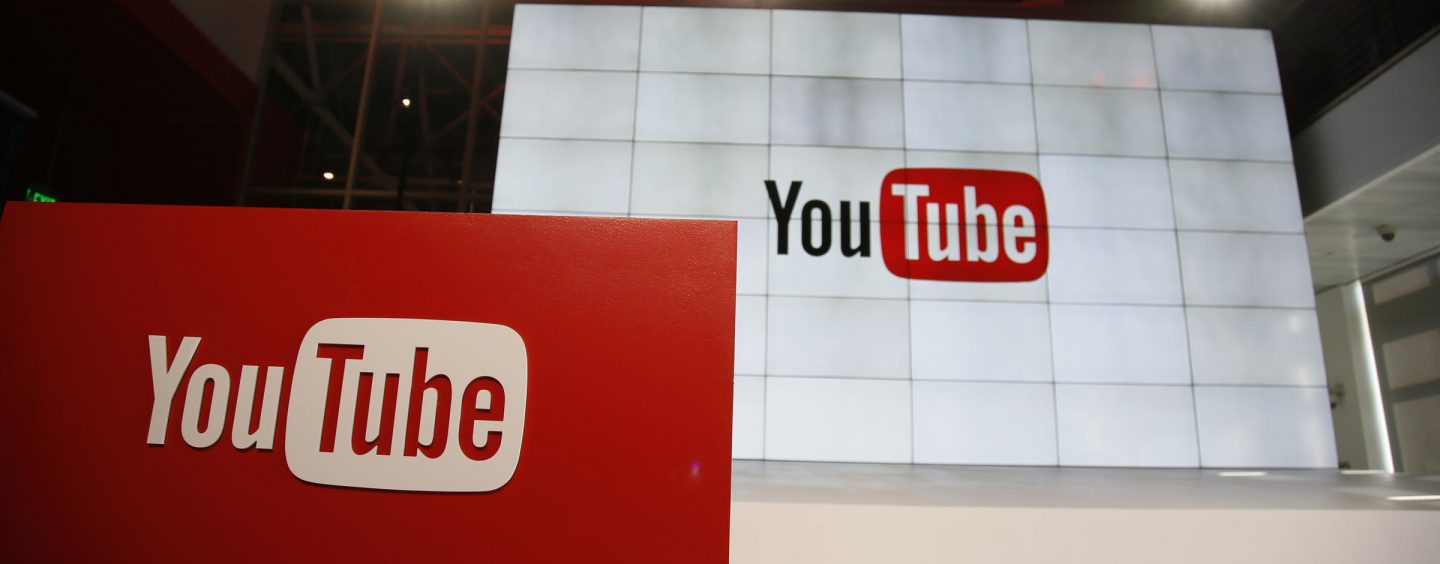
YouTube’s Birthday Present To Tommy Sotomayor: Releases Its New Expanded Anti-Harassment Policy To Include All Creators & Public Figures! (Live Broadcast)
by Tj Sotomayor December 12, 2019 0 commentsAbout Damn Time!
By: Tommy “Tj” Sotomayor
/cdn.vox-cdn.com/uploads/chorus_image/image/65875276/wjoel_1777_180403_youtube_005.0.jpg)
YouTube today announced an expansion of its anti-harassment policy that will ban video creators from insulting one another on the basis of their race, gender expression, or sexual orientation — even if the person they are insulting is a popular creator, celebrity, politician, or other public figure. The new policy comes several months after YouTube was criticized for declining to remove videos posted by right-wing commentator Steven Crowder in which he repeatedly called Vox video host Carlos Maza a “lispy queer,” among other things. In the face of strong public outrage, YouTube said it would reconsider all of its harassment policies.
The review was initially intended to focus on videos in which one creator targets another, like what happened in the Crowder case. But today’s update goes further, making four core changes to YouTube’s policy.
One, the policy expands the types of threats that are now banned. Historically, YouTube has banned direct threats like “I’m going to kill you.” Now, more veiled and implied threats will be banned as well. That means no brandishing a weapon while discussing someone, or altering a violent video game to put someone else’s face on a murder victim.
Two, the policy now bans targeted harassment campaigns. In an interview, the company told me that harassment on YouTube often doesn’t come down to a single insult. Instead, it’s a sustained effort over many videos. Under the new policy, YouTube will now take a more holistic view of what a creator is saying on their channel. Even if individual videos don’t necessarily cross the line, if they still contribute to the persecution of another person or creator, they’re eligible for removal.
This expansion of the policy directly addresses an omission that contributed to Crowder’s harassment campaign, which Maza illustrated with a viral supercut of the times Crowder had targeted him. At the time, YouTube said that because Crowder’s insults came within the context of longer videos about many other subjects, it would be unfair to remove them. The new policy should make it harder for other bad actors to use YouTube the way Crowder did.
Three, the policy now bans insults on the basis of a protected class, such as race, gender expression, or sexual orientation. So: no more “lispy queer” slurs. The policy applies to all individuals, whether they are creators or not, and even if they are public figures, where social networks have historically tolerated much more offensive speech.
Finally, YouTube is expanding a program that uses machine learning to identify potentially offensive comments and stick them into a holding pen where creators can decide whether they want the comment to appear under their videos. The feature has been turned on by default for most creators since earlier this year.
“We remain committed to our openness as a platform and to ensuring that spirited debate and a vigorous exchange of ideas continue to thrive here,” said Matt Halprin, YouTube’s vice president of trust and safety, in a blog post. “However, we will not tolerate harassment and we believe the steps outlined below will contribute to our mission by making YouTube a better place for anyone to share their story or opinion.”
By PAOLO ZIALCITA• DEC 11, 2019ShareTweetEmail
- YouTube announced changes Wednesday to its anti-harassment guidelines. The company has faced criticism in the past for failing to enforce its rule.DANNY MOLOSHOK / AP
Originally published on December 11, 2019 4:56 pm
For years, YouTube has faced flak from its critics over the video platform’s anti-harassment policies. Now, the Google-owned company announced Wednesday it will take a tougher stance on content negatively targeting people based on their race, gender expression or sexual orientation.
Videos and comments with a threatening or intimidating message will be removed under the new guidelines. The policy will apply to everyone, “from private individuals, to YouTube creators, to public officials.”
Matt Halprin, a vice president at YouTube, said the changes were made after seeking opinions.
“We heard this time and again from creators, including those who met with us during the development of this policy update,” Halprin said.
“We also met with a number of experts who shared their perspective and informed our process, from organizations that study online bullying or advocate on behalf of journalists, to free speech proponents and policy organizations from all sides of the political spectrum.”

TeamYouTube✔@TeamYouTube · Dec 11, 2019Replying to @TeamYouTube
Q: When will YouTube start enforcing the updated harassment policy?
A: We’ll gradually ramp up enforcement in the coming months. Starting today, videos that violate new aspects of the policy may be removed, but you won’t receive strikes.

Q: Why are you changing the harassment policy?
A: We recognize that harassment hurts both those that are targeted & our community by discouraging people from sharing opinions & engaging w/ each other. We want to better protect the community’s right to feel at home on YouTube.1859:24 AM – Dec 11, 2019Twitter Ads info and privacy135 people are talking about this
The changes are the latest in YouTube’s attempt to reexamine its anti-harassment policies. The company came under scrutiny in June following its decision to not ban a right-wing YouTuber for repeatedly targeting a gay journalist.
June’s controversy began when Carlos Maza, a journalist who hosted Vox’s Strikethrough, tweeted a compilation of racist and homophobic abuse he’s faced from Steven Crowder, who at the time had more than 3.8 million subscribers. YouTube’s announcement that Crowder’s homophobic rhetoric didn’t violate terms of service was met with outrage from the LGBTQ community and allies.
Following the outcry, YouTube has since denied Crowder the right to earn money from advertising on the site — although he still remains active there. Removing ads from channels is one punishment applicable to repeat offenders. Videos can also be removed by the hands of YouTube administrators and entire channels can be deleted if actions elevate to such behavior.
Many have expressed skepticism that YouTube would actually enforce the new policies. Maza described the latest changes as “vague.”
“These policies only work if YouTube is willing to take down its most popular rule-breakers,” Maza tweeted. “And there’s no reason, so far, to believe that it is.”
Maza said demonetization can’t work when people like Crowder continue to make money from direct donations and merchandise, which can be plugged on their YouTube channels.
Others expressed concern that the guidelines would target the wrong people and stifle creative endeavors. One Twitter user asked, “How does this work with humor?” YouTube’s support team said they’ll take note of context behind videos.
“Scripted satire, comedy or music may be considered artistic – if a video’s purpose is educational, documentary, scientific or artistic, this is taken into account, but this is NOT a free pass to harass someone,” the company tweeted.
Paolo Zialcita is an intern on NPR’s News Desk.







No Comments so far
Jump into a conversationNo Comments Yet!
You can be the one to start a conversation.Only registered users can comment.